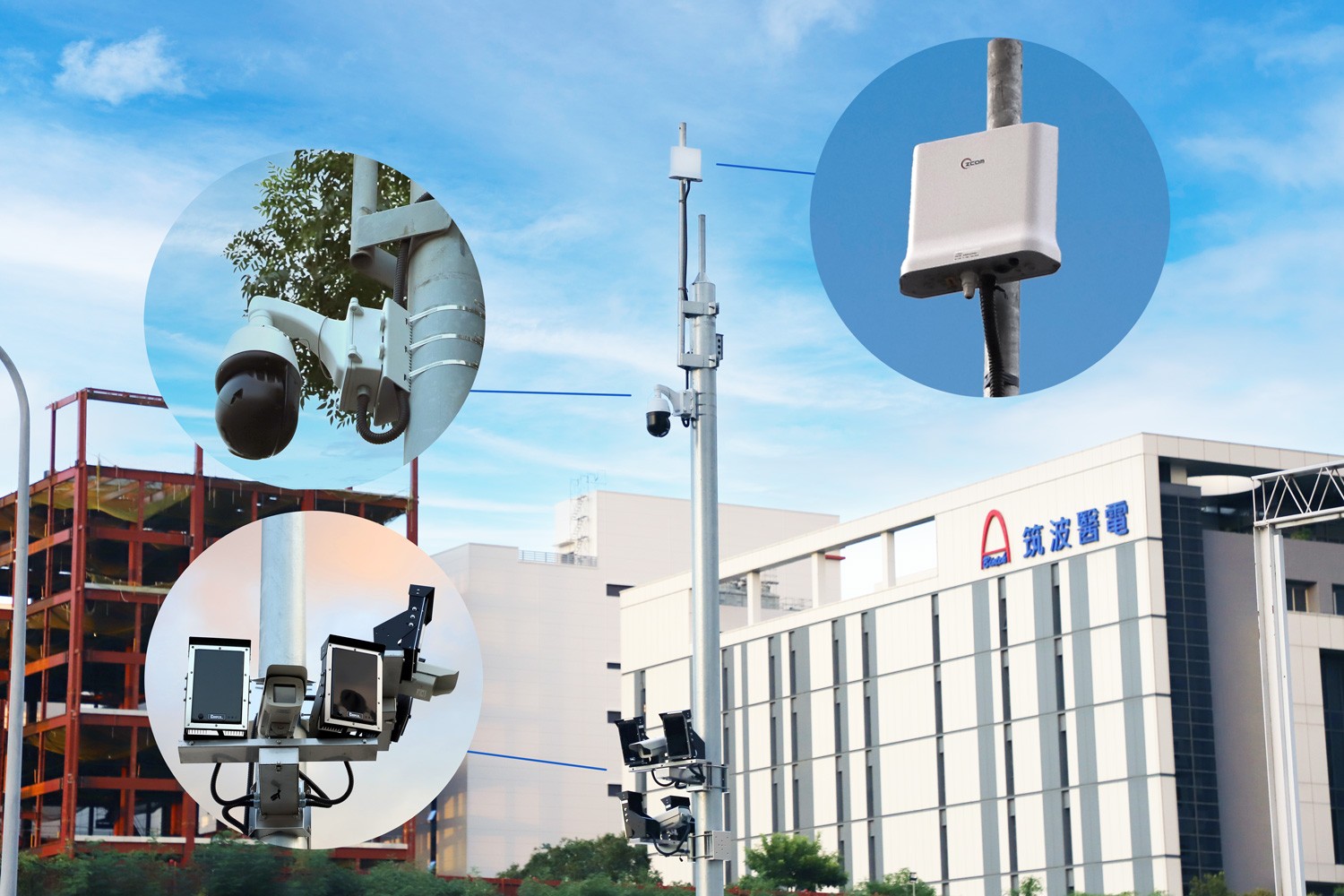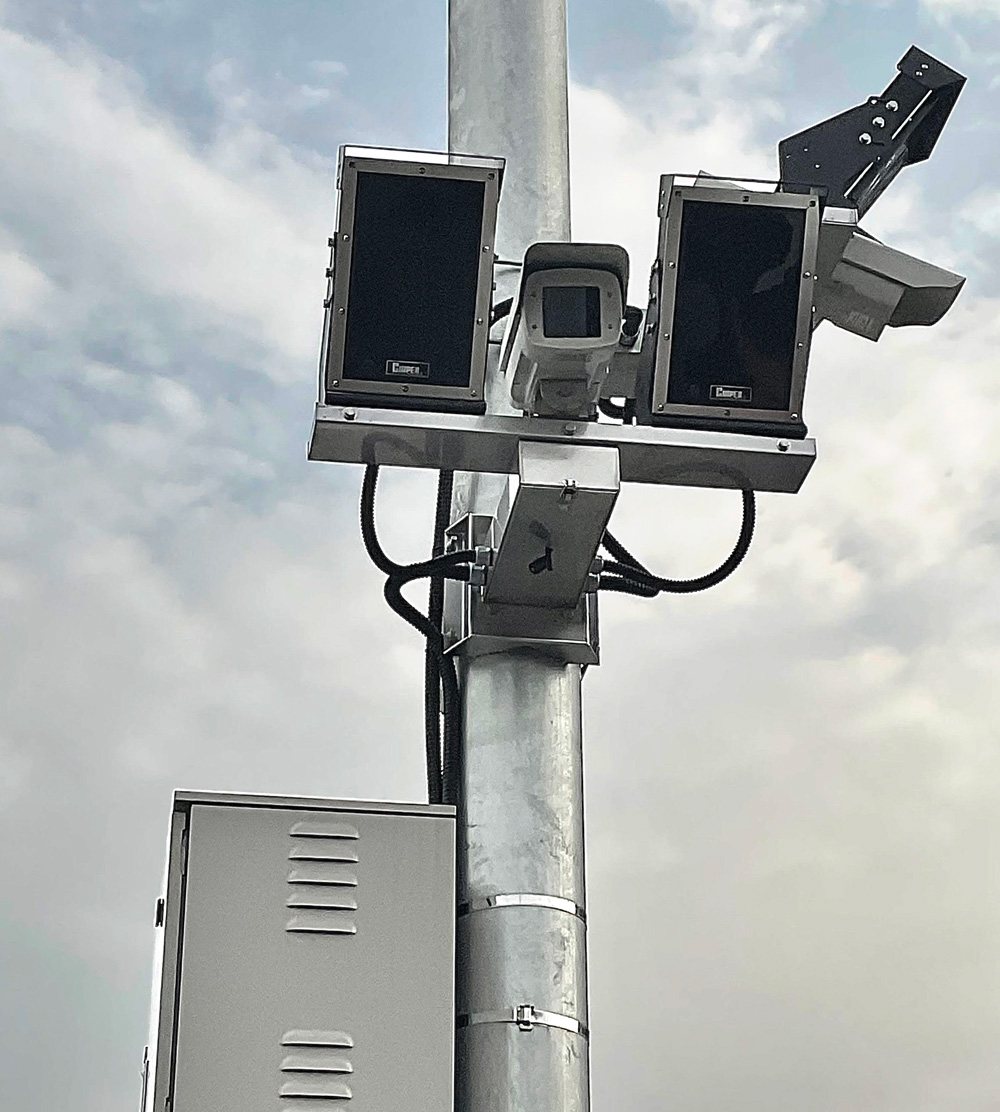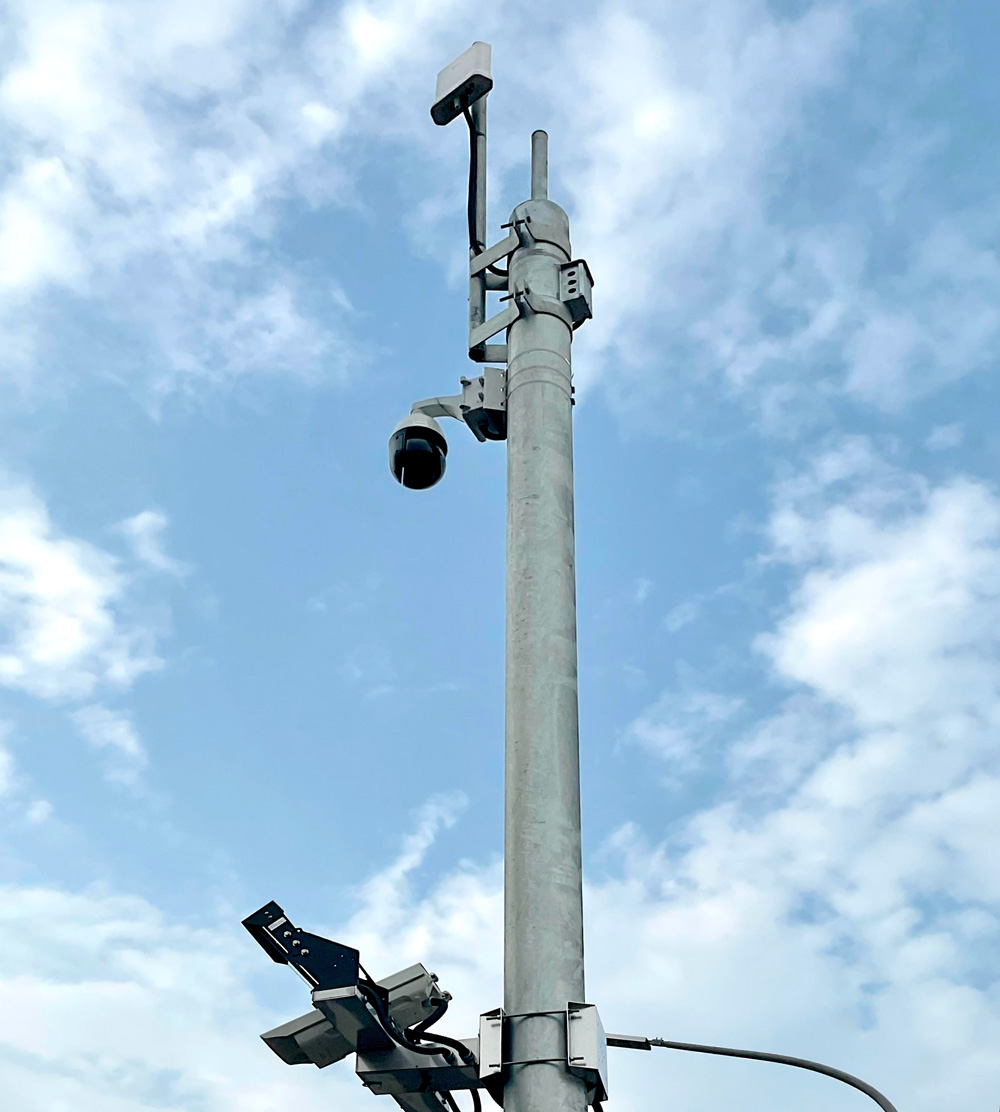【In-vehicle WiFi】Enhancing Traffic and Security Monitoring with Wireless Network Solutions in Hsinchu Biomedical Science Park

Requirements
- Surveillance cameras data transmission
- License plate recognition cameras data transmission
- Wireless network for locations where wired networks cannot be deployed
Solution
Point-to-Point/Bridge Outdoor Wireless Access Points

Features
- High bandwidth performance with Wi-Fi 6
- Stable mid to long-distance transmission
- Overcomes installation limitations of wired and fiber optic networks
- Enhanced security with the latest WPA3 encryption protocols
- Outdoor IP67 waterproof and dustproof certification
- CE lightning protection standards
- Wind resistance up to level 14
- Vent valve design for better durability
Overview
In the post-pandemic era, the biotechnology industry is flourishing. As a result, the Hsinchu Biomedical Science Park is facing a growing number of workers and increased traffic, placing its traffic management system under greater strain. To address these challenges, the Hsinchu Science Park Bureau is turning to technology to improve security and traffic monitoring, introducing upgraded surveillance camera and license plate recognition (LPR) systems.

The surveillance camera and LPR systems have four main application scenarios:
1. Real-time monitoring of security and traffic conditions to improve response efficiency
2. Clarifying traffic accident liability by monitoring vehicle movements and signal operations
3. Monitoring traffic violation behaviors and identifying license plate numbers when handling traffic violation cases
4. Detecting fire truck entries during emergencies, notifying personnel for prompt action
![1726819613.2099.jpg 183-[轉換].jpg](/uploadfile/ueditor/image/2024/0920/1726819613.2099.jpg)
To ensure reliable communication within the system, Z-COM proposed a solution to install point-to-point (PtP) outdoor wireless access points at the entrances of Shengyi Road Sections 1 and 2.
Deployment Solution
Originally, the surveillance camera and LPR systems relied on a fiber optic backbone network. However, environmental challenges at some intersections, such as nearby buildings lacking wired networks, made it necessary to deploy wireless networks.
Outdoor wireless access points were installed at these challenging intersections, enabling wireless transmission of video data through a point-to-point network. This allowed data to be routed through nearby access points connected to the fiber optic network, and then transmitted to the server room and management centers.
To ensure stable and high-resolution image transmission, Z-COM selected Wi-Fi 6 access points capable of speeds up to 600Mbps within a 1km range. These devices also support the latest WPA3 encryption protocols, ensuring the security of the transmitted surveillance camera and LPR data.

 |  |
Conclusion
Z-COM 's point-to-point wireless transmission solution successfully overcame the construction limitations in wired network deployment, significantly reducing both time and costs while providing real-time, stable, and high-quality image transmission. As a result, the park's traffic and security monitoring system was greatly enhanced, laying the foundation for more efficient park management.




